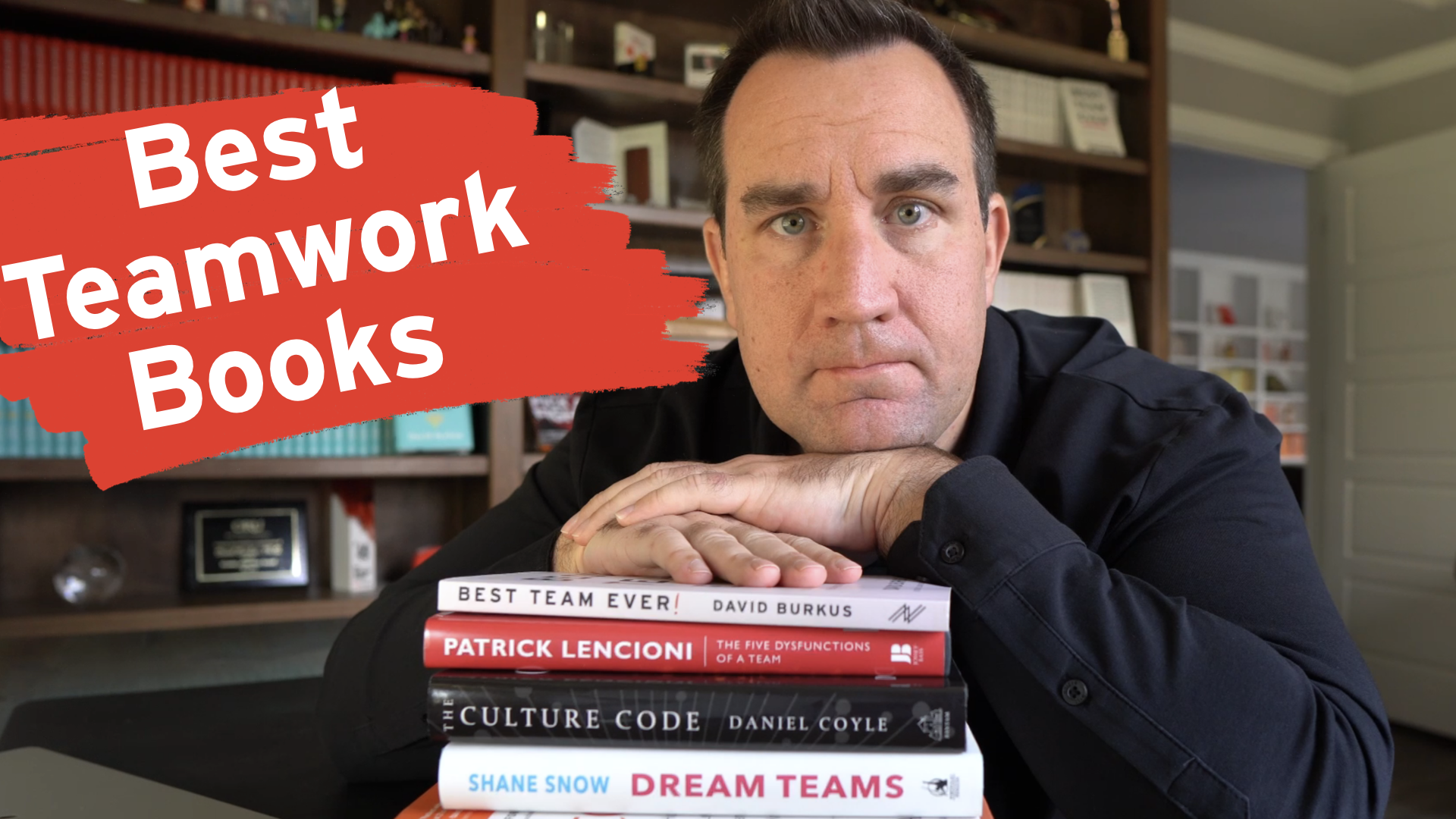
Most leaders know teamwork matters. But few take the time to study what actually makes teams work.
We rely on instinct, gut feel, or experience from past teams—good or bad—and assume it’ll all work out. But in today’s complex, collaborative, cross-functional world, those assumptions often lead us astray.
If you want to lead high-performing teams consistently, you need better inputs. And for me, some of the best inputs have come from books—not just books about leadership, but books specifically about teamwork. The kind that change how you think about team culture, team dynamics, and the actual work of working together.
These aren’t just good reads. They’re the best teamwork books I’ve found, presented in no particular order because this isn’t a ranking…it’s a resource.
📚 Best Teamwork Books
1. The Five Dysfunctions of a Team by Patrick Lencioni
Probably the first one you thought of too. This is a business fable that somehow nails real team dysfunctions with precision. Lencioni’s model—from lack of trust to inattention to results—offers a practical, memorable way to diagnose and address breakdowns. I’ve referenced this book with dozens of leaders because it gets past the surface and straight to the relational heart of team performance.
2. The Culture Code by Daniel Coyle
Coyle makes the case that talent alone doesn’t create great teams—culture does. He distills team culture into three key behaviors: build safety, share vulnerability, and establish purpose. What stood out to me is how much of team excellence is invisible, built in the small moments. It’s a great reminder that culture is less about slogans and more about habits.
3. Dream Teams by Shane Snow
This one turns a lot of conventional wisdom upside down. Shane Snow argues that the best teams aren’t the most harmonious—they’re the ones that learn how to disagree productively. With examples from science, sports, and even organized crime, he shows that friction (when handled well) makes teams smarter. A great read for leaders dealing with complexity and cognitive diversity.
4. Team of Teams by Stanley McChrystal
McChrystal’s story of transforming Joint Special Operations Command is a masterclass in breaking down silos. His team couldn’t win modern battles using traditional hierarchy. So they built a “team of teams” built on shared consciousness and empowered execution. It’s a great reminder that agility isn’t just for startups—it’s a requirement in any complex environment.
5. Collaboration by Morten Hansen
Here’s the uncomfortable truth: not all collaboration is good. Hansen shows that ineffective collaboration can actually make performance worse. His concept of disciplined collaboration—knowing when and how to collaborate—helped me see the difference between helpful alignment and wasted effort. Especially valuable for leaders in large or matrixed organizations.
6. Tribal Leadership by Dave Logan, John King & Halee Fischer-Wright
This book maps out five stages of team culture, from toxic to world-changing. What makes it stand out is the focus on language—how the words people use reveal the tribe they belong to and the performance they can unlock. It gave me a new lens for diagnosing team dynamics and helping leaders upgrade their team’s shared narrative.
7. Teaming by Amy Edmondson
Unlike most books that treat teams as fixed entities, Teaming focuses on teamwork as a dynamic, ever-evolving process. Edmondson shows how people must learn to collaborate quickly across boundaries, roles, and expertise areas—especially in fast-moving environments. It reframed for me how learning and collaboration go hand in hand, especially when teams are temporary or fluid.
8. Best Team Ever by David Burkus
Yes, it’s mine. But if you noticed, a lot of these other books are pretty old. They’ve stood the test of time, but research is always evolving. And so I wanted to understand what consistently sets high-performing teams apart—based on the latest evidence. What I found were three repeatable habits: common understanding, psychological safety, and prosocial purpose. Best Team Ever is a blueprint for building teams where people do their best work—and genuinely want to.
Final Thoughts
You don’t have to read every book on teams to lead a great one. But you do need to rethink how you approach teamwork—what you reward, what you reinforce, and how you respond when things go sideways. These are the best teamwork books that helped me do that. They changed how I build, lead, and coach teams—and they might do the same for you.
Because great teams aren’t just born.
They’re built—habit by habit, choice by choice, leader by leader.
P.S. If you are looking for a list of the best books on leadership, I compiled a list here.

About the author
David Burkus is an organizational psychologist, keynote speaker, and bestselling author of five books on leadership and teamwork.